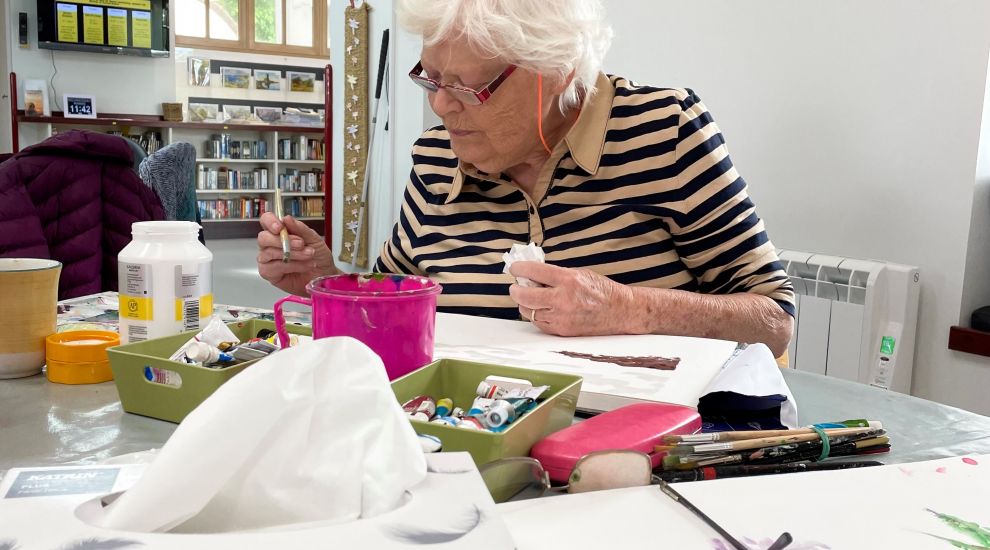


An elderly islander has shared her experience of visual and auditory hallucinations to raise awareness of the challenges people face when living with dual sensory loss for Deafblind week.
Life can be challenging for people with sight loss or hearing loss, but a combination of the two can be even more difficult.
For some people, such sensory losses are accompanied by hallucinations.
Visual hallucinations, which are common to many sight loss conditions, are caused by the brain trying to make sense of limited information received via the eyes, whilst the incidence of auditory hallucinations increases according to the severity of hearing loss.
Norma has lived with sight loss for many years. For much of that time she has experienced visual hallucinations, known as Charles Bonnet Syndrome. Norma also has hearing loss, which has led to her experiencing auditory hallucinations.
Although Norma usually recognises that her visual hallucinations are unreal, on occasion they’ve alarmed her.
She regularly sees "fields full of long-stalked pink flowers, and once, at a concert, watched a long line of soldiers processing past the orchestra pit".
However, she also remembers shouting at the person driving her to prevent a collision with a non-existent gate and an occasion when she failed to recognise her house at night when returning by taxi, as the frontage was obscured by huge granite boulders.
Fortunately, other than seeing non-existent patterns on the carpet and sparkles on the kitchen floor, Norma isn’t particularly bothered by visual hallucinations in her own home.
Unfortunately, the same can’t be said for the auditory hallucinations she experiences. These routinely wake her at night.
Initially, Norma thought the noises were coming from next door. She tried ear plugs, but they couldn’t block out the sound of bagpipes, Country and Western music, or television news broadcasts.
Once Norma had realised that the noises didn’t relate to her neighbours, unsurprisingly she feared she had dementia. However, her GP reassured her that the noises she experienced were caused by her hearing loss.
Norma has since invested in a headset so that she can listen to white noise and block out the intrusive sounds which have prevented her from sleeping.
People who have adjusted to hearing impairment may lose the ability to lip-read as their sight fails, whilst people with sight impairment, who will increasingly have depended on their hearing, will notice a significant drop in the things they can manage.
Inability to hear and see the environment through which they’re moving puts people with dual sensory loss at greater risk of accident.
It is important to seek help as soon as you notice problems with your sight or hearing as it may be possible to treat, or to stabilise, the condition if caught early enough.
Support is available for any islander with sight, hearing, or dual sensory loss though charity EYECAN.
Comments
Comments on this story express the views of the commentator only, not Bailiwick Publishing. We are unable to guarantee the accuracy of any of those comments.